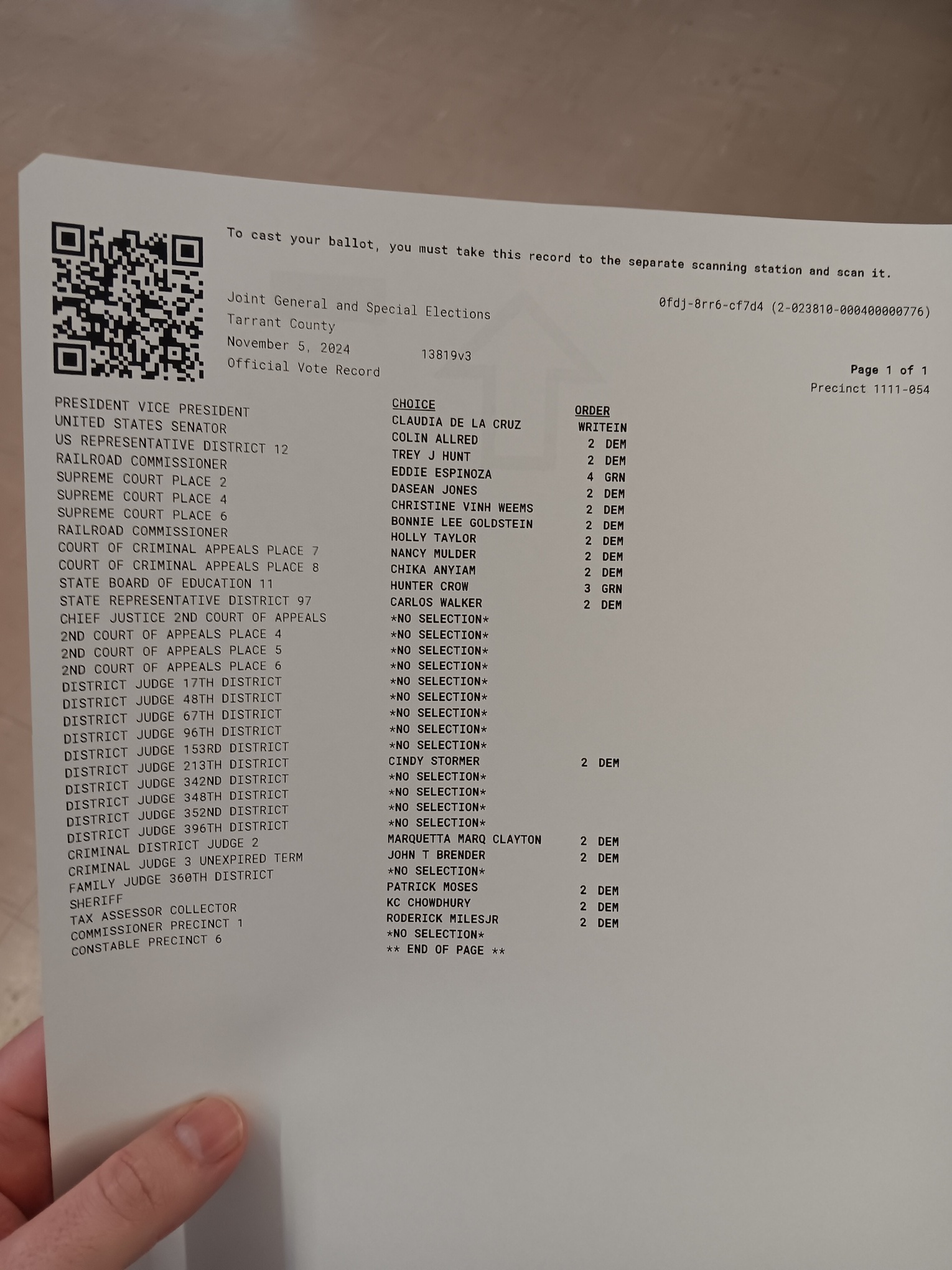If automation really is the boon to society that we think it is, then buying out the displaced workers is a no-brainer. If, on the other hand, it's really just a boon for the bourgeoisie, then fuck their automation. Automation will be liberatory or it will be bullshit.
aspensmonster
Dover: it's either a breeze or completely inscrutable.
"Could you please rebase over main first?"
"Could you please rebase over main first?"
Similarly, I find a fair number of Rust crates (that I want to use) have virtually no doc or inline examples, and use weird metaprogramming that I can’t wrap my head around.
Is it really a true rust crate if it doesn't contain at least one inscrutable macro?
Turns out they thought ArcGIS cost the same as like Office or Acrobat, and they didn’t budget for it for the fiscal year that started 2 weeks before I started working.
ESRI is in the position that Microsoft and Adobe want to be in, a de-facto monopoly.
Once you’ve eliminated the cause for NATO, then dissolving NATO will make sense.
The cause for NATO was eliminated. NATO didn't dissolve. It grew. Spoiler alert: there are no good guys in a war between imperialists.
Once you’ve eliminated the cause for NATO, then dissolving NATO will make sense.
The cause for NATO was eliminated. NATO didn't dissolve. It grew. Spoiler alert: there are no good guys in a war between imperialists.
I'd say there are three pieces, each feeding into the next.
- A Culture Favouring Novelty Over Replication - There are no Nobel prizes for replicating findings. There is no Fields medal for roundly and soundly refuting the findings of a paper. There is no reputation to be built in dedicating oneself to replication efforts. All incentives push towards novel, novel, novel.
- Funding Follows Culture - Nobody wants to pay twice for a result (much less thrice) especially if there's a chance that you'll expose the result as Actually Wrong on the second or third go.
- Publish or Perish - Scientists have material needs -- both personally and for their actual work -- acquired through funding. That funding demands the publishing of novelty. If your results aren't novel, then they won't get published (not anywhere that matters, anyway). And if you don't get published (where it matters), then you don't get funded. And if you don't get funded, you perish. And so the circle of scientific life is complete.
At every step, the incentives involved in the production of science are, ironically, rewarding un-scientific behaviour and ignoring -- if not outright punishing -- actual science. Until replication is seen as an equal to novelty, this regime will persist.

But you're not doing the hard things. You're doing the easy thing. Capitulation to surveillance capitalism is the easy thing.